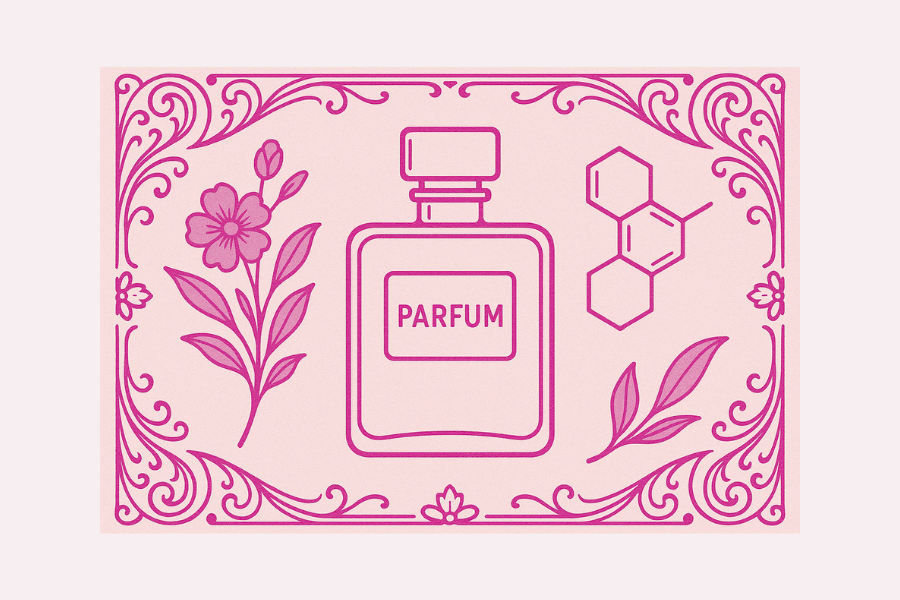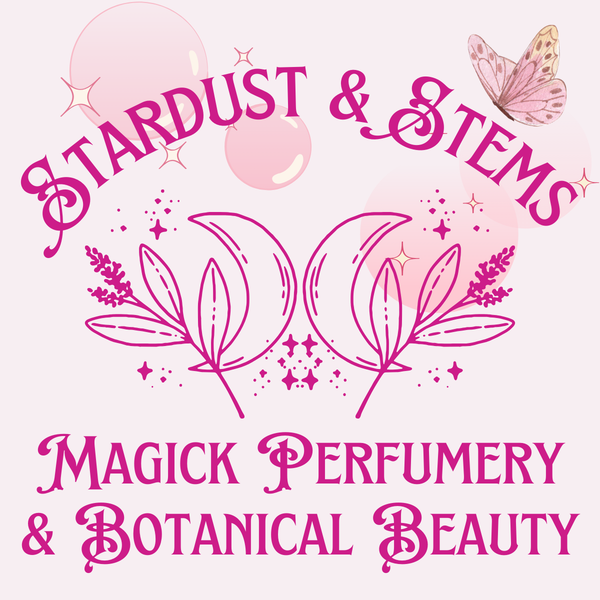
Nature + Science: A New Chapter for Stardust & Stems
Share
Since 2022, Stardust & Stems has been rooted in the magic of the natural world. Our fragrances have always been crafted with essential oils, absolutes, resins, and plant-derived aroma molecules—never synthetic fragrance oils, parabens, or phthalates. Wearing something born from the earth just feels different. It’s deeper, wilder, more magical.
But magic doesn’t only live in gardens and forests—it can also be found in careful, conscious science. As we evolve, so will our ingredients. Beginning with perfumes released in May 2025 and beyond, we are beginning a thoughtful shift: continuing to use a vast majority of natural materials, while embracing a small percentage of ethically chosen, lab-created aroma molecules where it makes sense to do so.
Here’s why—and what it means for you.
Natural vs. Synthetic: What’s the Real Difference?
The word “synthetic” often gets a bad reputation. But in perfumery, it’s not so black and white. An aroma molecule is a molecule—it doesn’t care whether it came from a flower or a lab.
Take linalool, a fresh, slightly floral scent found in lavender and basil. Linalool can be extracted from those plants or synthesized in a lab—and either way, it’s chemically identical. Same scent, same structure, different source.
That’s true for many common perfume ingredients. What matters more is how they’re made, their environmental impact, and how they interact with the body and the earth.
Why Add Synthetics at All?
In certain cases, a synthetic alternative is not only acceptable—it’s better for the environment, for animals, and for sustainability. Here are just a few examples:
• Musk: True animal musk is ethically off the table for us (and most modern perfumers). While some plants can offer a musky note, synthetic musks like Ambrettolide or Galaxolide provide cruelty-free, skin-safe options that mimic the warm, sensual depth of musk without the harm.
• Sandalwood (Santalol): Real sandalwood oil is often overharvested and endangered. While we have previously used natural sandalwood when available from sustainable sources, we will now be shifting to a synthetic alternative to sandalwood in all formulas—past and future—as an act of environmental responsibility.
• Cis-3-Hexenol: This molecule smells like freshly cut grass—and capturing it from actual plant matter would require an enormous environmental footprint. A synthesized version makes more sense for both nature and wearers.
One specific example from our own work: Some of our current perfumes include a small amount of butter CO₂ for its rich, lactonic warmth. While natural, it is not vegan. One of the motivations behind our move toward select lab-created aroma molecules is to replace butter CO₂ with a vegan alternative that offers a similar scent profile—keeping the experience just as dreamy, but more inclusive.
Used sparingly, synthetic aroma molecules help us preserve the soul of natural perfumery while enhancing it with creative freedom, greater safety, and a lighter ecological footprint.
What This Means for You
We’re adjusting our approach with the same care and reverence that guided us from the beginning. Starting in May 2025, you can expect:
• At least 80% (but on average 96%-100%) of every new perfume to be made from natural materials: essential oils, absolutes, resins, and plant-derived isolates.
• Up to 20% (on average 0%-4%) of the formula to include thoughtfully selected, lab-created aroma molecules.
• Every formula to be in full compliance with IFRA (International Fragrance Association) safety standards, which exist to protect your health and the environment.
• All of our perfumes will continue to be paraben-free and phthalate-free, always.
• Many of our perfumes are vegan already, and this shift will help us move toward even more fully vegan options in the future.
All perfumes created prior to May 2025 will continue to be 100% plant-derived natural, with one exception: any natural sandalwood in those formulas will now be replaced with a lab-created sandalwood substitute due to growing environmental concerns and the need to preserve endangered sandalwood species.
You’re always welcome to reach out to us directly to:
• Ask which perfumes are 100% natural
• Learn the percentage of synthetics in any specific formula
• Find a scent that aligns with your individual values
And What About Our Skincare & Tinted Products?
No changes there! Our lip balms, lip/cheek tints, and skincare offerings will continue to be:
• Synthetic fragrance-free
• Paraben-free
• Phthalate-free
• 100% vegan
Your Scent, Your Choice
We know this shift won’t be right for everyone—and that’s okay.
Perfumery is deeply personal. We encourage you to do your own research, follow your intuition, and choose what feels best for your body and your beliefs. At Stardust & Stems, we’re committed to full transparency, and we’re always happy to answer questions about our ingredients and process.
We still believe in the magic of wildflowers, forest resins, and hand-pressed oils—and we believe that a little science, when done with love and responsibility, can be just as enchanting.
